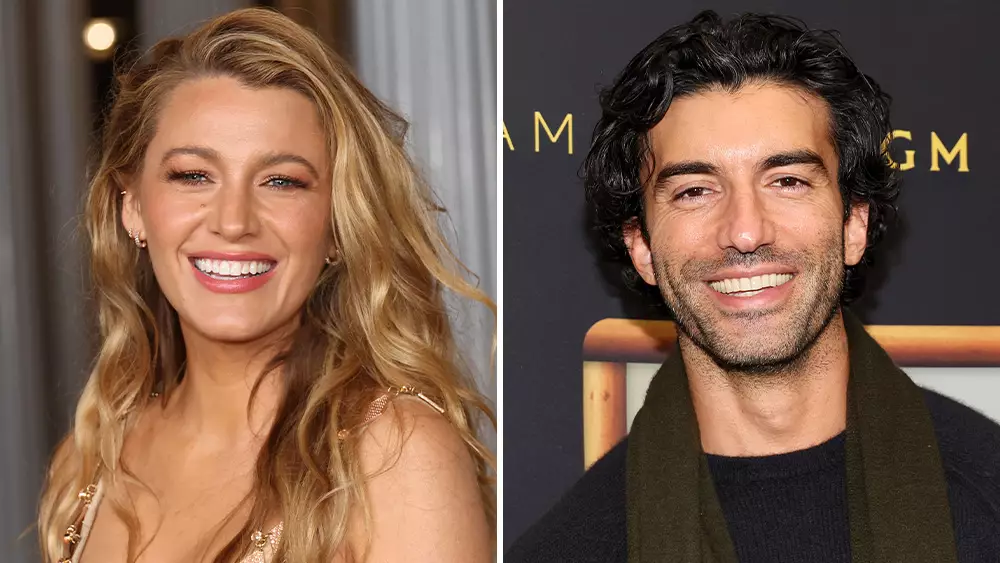In the glamorous yet often tumultuous world of Hollywood, the intersection of personal relationships and professional boundaries can frequently lead to conflict. A recent high-profile case exemplifies this phenomenon: Blake Lively has taken legal action against her co-star and director, Justin Baldoni, igniting a firestorm within the entertainment industry. The allegations include sexual harassment and retaliation, with Lively claiming that Baldoni and his team worked to undermine her credibility and silence her concerns about a hostile work environment during the filming of the adaptation of Colleen Hoover’s novel, “It Ends With Us.”
Lively’s journey began when she filed a complaint with California’s Civil Rights Department, setting the stage for a more extensive legal action that would follow. The actress accuses Baldoni and key members of his production company, Wayfarer Studios, of orchestrating a retaliatory scheme to harm her reputation and discourage any discussion about the workplace culture on set.
The Scope of the Allegations
The recent legal filings paint a chilling picture of a coordinated attack against Lively, characterized by the lawsuit’s detailed accusations. The complaint reportedly consists of thirteen claims outlining how Baldoni’s team allegedly sought not only to discredit but also to intimidate Lively in an effort to suppress her voice. This raises important questions about the nature of power dynamics in the entertainment industry, where those at the top sometimes resort to unsavory tactics to maintain their positions.
The narrative of a litigious back-and-forth escalated further as Baldoni, in a surprising turn, filed a counterclaim against both Lively and The New York Times for a reported article that criticized his conduct during production. His counteraction suggests a significant backlash against the depiction of events as they unfolded on set. Baldoni’s legal team argues that communications reported in the media were deliberately misrepresented, portraying him in a less favorable light than warranted.
This case puts under scrutiny the ongoing issues of workplace safety and gender dynamics prevalent in the film industry. Women, in particular, are often subject to a culture of silence and retribution for speaking out against harassment or unprofessional behavior. Lively’s lawsuit is emblematic of a growing movement within Hollywood where individuals, particularly women, are increasingly willing to hold their colleagues accountable for alleged misconduct.
In today’s climate, where social media amplifies all voices, the stakes of such legal disputes extend beyond the courtroom. They affect public perception and can significantly impact the careers of those involved. As Lively’s legal team articulated, the dismissal of her grievances, coupled with a potential smear campaign, signifies deep-rooted issues of retaliation faced by those who dare to challenge the status quo.
Through her lawsuit, Lively not only seeks justice for herself but also highlights the broader narrative of individuals standing up against systemic abuse in the industry. Her representatives claim this legal action is a direct result of retaliation for her attempts to advocate for a safe working environment. It is crucial to examine the implications of such a statement. When an actor of Lively’s stature takes a stand, it sets a precedent for others who may be hesitant to voice their concerns.
This case is not just about Lively and Baldoni; it’s a reflection of an industry in flux, grappling with its troubled past while navigating the changing landscape of workplace culture. As more people opt to bring their grievances into the light, it encourages other victims to step forward, knowing that they are not alone in their experiences. The ripple effects of this litigation could lead to transformative changes in Hollywood, motivating studios to enforce stricter workplace safeguards and sensitivity training programs.
In the end, the legal confrontation between Blake Lively and Justin Baldoni encapsulates a much larger issue facing the entertainment industry. As more individuals like Lively come forward with allegations of misconduct, the call for accountability grows louder. The outcome of this lawsuit could not only impact the careers of those involved but also help determine the future direction of Hollywood’s workplace culture.
As the legal proceedings unfold, one thing remains clear: the dynamics of power and fear in the realm of filmmaking are under intense scrutiny. Only time will reveal whether this lawsuit serves as a catalyst for positive change or remains a contested chapter in the complicated narratives of Hollywood justice. What is certain is the intention behind Lively’s actions, which, whether successful or not, contribute to the ongoing conversations about safety, respect, and fairness in the workplace.
